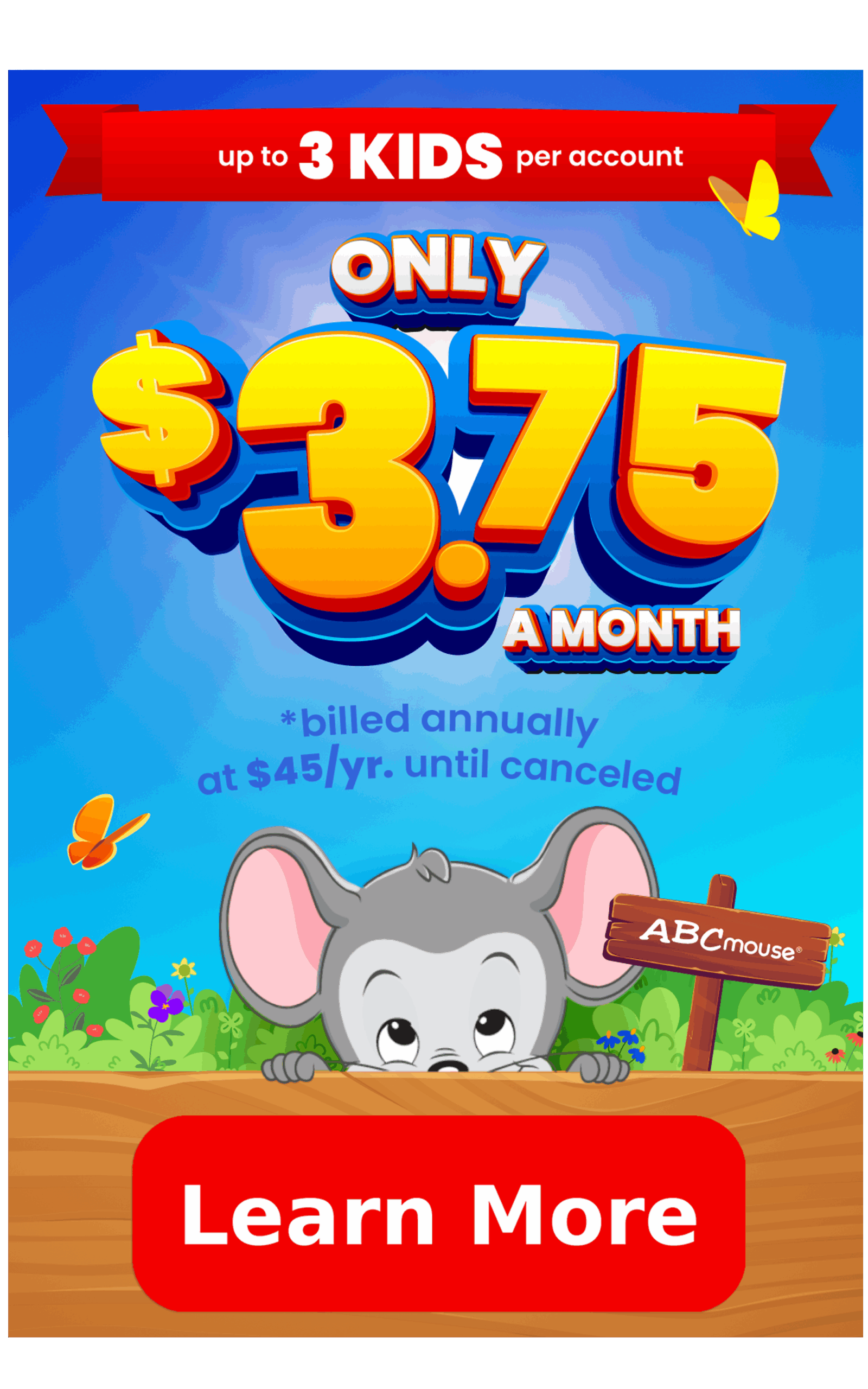
Kindergarten Vocabulary List–Words Your Kids Should Know
Find 30 vocabulary words for your kindergartener, plus learn how to use them and the benefits of knowing them.
Why Is Vocabulary Important in Kindergarten?
Vocabulary plays a crucial role in communication, especially for young children. For kindergarteners, having a rich and varied vocabulary is like having a magical key that unlocks a world of words, enabling them to better express themselves and understand others.
During these early years, children have an amazing ability to absorb new words quickly, laying a strong foundation for literacy, cognitive development, and effective communication.
This article aims to highlight the importance of vocabulary development for kindergarteners and includes engaging strategies and activities that can help enrich children’s vocabulary in a fun and meaningful way.
You’ll also find a carefully curated list of essential words that are appropriate for this age group. Please note that while we provide a list of words, there are many different words and meanings to explore with your child. Feel free to supplement our list with words that are relevant or interesting to your child.
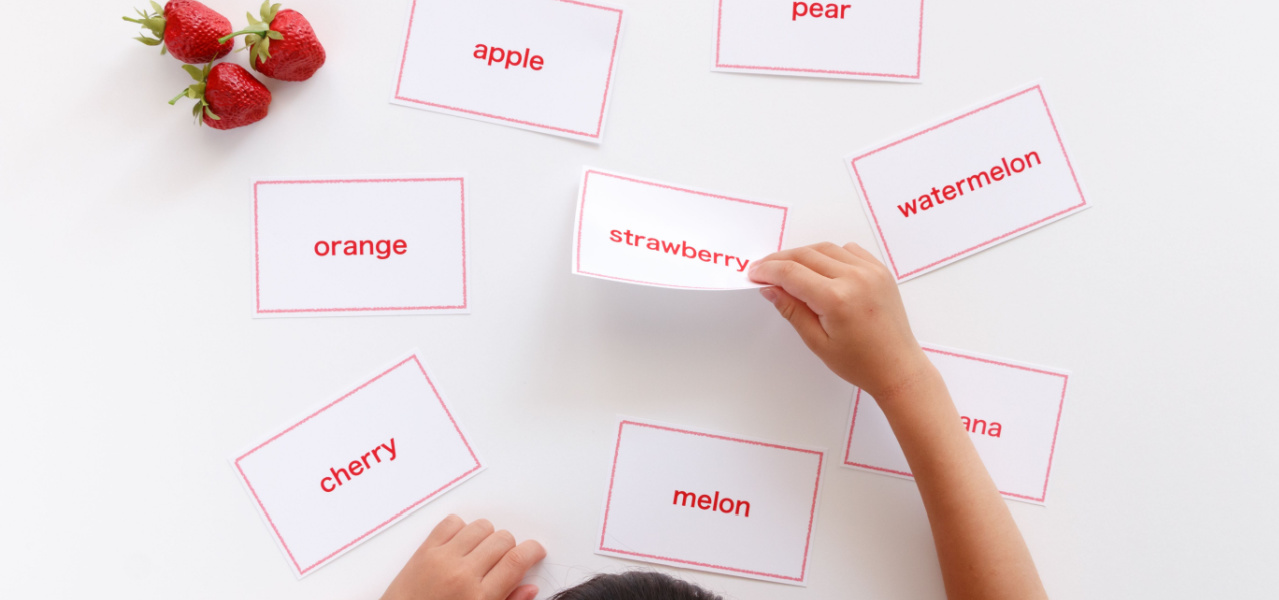
Kindergarten Vocabulary List: 30 Words Your Kids Should Know
Words Describing Nuance in Size and Light
- Small vs. Short: Understanding size in terms of height and general dimensions.
- Light (weight) vs. Light (brightness): Differentiating between physical weight and illumination.
- Tiny vs. Shrunken: Discussing something naturally small versus something reduced in size.
- Slim vs. Narrow: Comparing thinness in different contexts (objects or spaces).
- Bright vs. Soft: Contrasting levels of light intensity and texture.
New Contexts for Familiar Words
- Duck (animal) vs. Duck (action): Exploring a word with both a noun and verb form.
- Bat (animal) vs. Bat (sports equipment): Understanding one word with two distinct meanings.
- Ring (jewelry) vs. Ring (sound): Differentiating between a noun and a verb.
- Well (healthy) vs. Well (water source): Learning about homonyms.
- Fall (season) vs. Fall (to drop): Discussing seasonal names and physical actions.
Words with Similar Parts
- Undo vs. Unwrap: Exploring the prefix “un-” meaning “not” or “opposite of”.
- Unhappy vs. Unusual: Understanding how “un-” changes the meaning of adjectives.
- Unlock vs. Uncover: Discussing “un-” in the context of actions.
- Unfair vs. Unfit: Exploring “un-” in evaluative terms.
Words for Newly Learned Concepts
- Sphere: Introducing three-dimensional shapes.
- Cylinder: Understanding 3D shapes with circular bases.
- Cone: Learning about shapes that taper from a flat base to a point.
- Pyramid: Discussing shapes with a polygonal base and triangular sides.
- Cube: Exploring equal sides in a three-dimensional context.
Words with Multiple Meanings
- Light (weight) vs. Light (brightness)
- Bark (tree) vs. Bark (sound)
- Rock (stone) vs. Rock (movement)
- Date (fruit) vs. Date (day)
Download our entire printable list of Vocabulary Words for Kindergarteners. Add your own vocabulary words in the blank spaces.
#1 Downloaded Kids’ Education App in the U.S.
The ABCmouse app has so much to offer! You and your child will find 10,000+ games and activities designed by curriculum experts to nurture math and reading skills, along with an extensive digital library and so much more. Our research-back curriculum focuses on preschoolers through second graders.
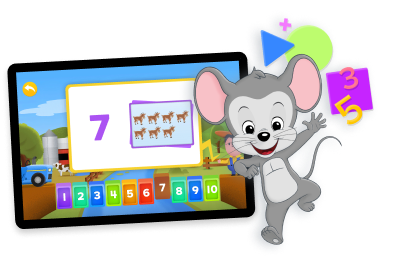
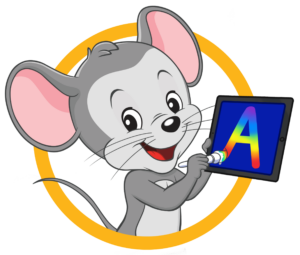
Then just $14.99 a month until canceled
The Benefits of Vocabulary Words for Kindergartners

- Aiding Communication and Expression
Having a rich vocabulary can really make a difference for young children. It allows them to express themselves more effectively and clearly, which can help them feel more confident and independent. Plus, communicating well is an important foundation for building relationships, sharing experiences, and navigating social situations.
- Enhancing Comprehension
Vocabulary is the key to unlocking understanding in various domains of learning. It allows children to grasp concepts, follow instructions, and interpret information, whether it’s in a storybook, a science experiment, or a math problem. A well-developed vocabulary acts as a tool for an important element of comprehension, enabling children to make sense of texts, contexts, and the nuances of language, enriching their learning experiences across subjects.
- Developing Cognitive and Social Skills
As children grow and learn, building their vocabulary is crucial to their cognitive development. It’s amazing how learning new words can spark their memory, attention, and reasoning skills. Encouraging children to explore and be curious about language can also help them observe, categorize, and connect different ideas and objects.
But vocabulary isn’t just about cognitive development, it’s also a social tool. It can help children develop empathy, cooperation, and conflict-resolution skills by giving them the language they need to understand and respond to others’ emotions and perspectives.
How to Use the Vocabulary List
Having a vocabulary list is a great start, but the real magic happens when these words are woven into the children’s daily lives, making learning an engaging and enjoyable experience. Parents and teachers can be the conductors of this symphony of words, orchestrating learning experiences that are rich, varied, and fun.
Incorporate Words into Daily Conversations
Creating a language-rich environment is crucial for children to learn new words. Incorporating these words into everyday conversations, such as meal times, play sessions, or bedtime stories, can greatly benefit their understanding. Contextual usage helps children to connect words to the world around them, including objects, actions, and emotions. Allowing them to experience new words can foster a love of language in our children.

Create Interactive Learning Sessions
Interactive learning sessions can become more thrilling for children when activities that involve exploring words through actions are incorporated. For instance, playing a game of charades or going on a word-based scavenger hunt can ignite a child’s curiosity and imagination, allowing them to experience words in a dynamic and unforgettable way. Thus, words can be transformed from mere symbols on a page to entities with meanings.

Utilize Games and Fun Activities
Word games such as word bingo, matching games, and word puzzles can greatly enhance memory retention, reinforce word recognition, and promote strategic thinking. Learning can become a delightful challenge, and acquiring new words can be a fun and rewarding experience.
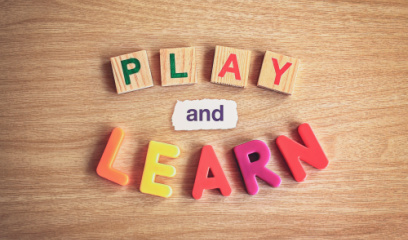
Encourage Word Awareness
Encourage children to be word detectives, exploring the world around them to find objects and actions related to the new words. Foster a sense of wonder and inquiry, prompting them to ask questions, make connections, and discover the myriad ways words can be used and understood.

Vocabulary plays a crucial role in effective communication and comprehension. The journey towards building a strong vocabulary begins early on in life, and the words learned during this stage lay the foundation for academic success in the future.
Incorporating these 100 essential words into daily conversations and activities can equip children with the necessary tools to express themselves, understand others, and explore the world around them. Providing them with the best chance to thrive is essential.
Check Out Our Online Learning Tools
Additional Resources
ABCmouse has kindergarten activities and games designed by early education experts to help your child keep learning:
Kindergarten Reading Worksheets
Explore our free printable kindergarten reading worksheets that you can download and print at home.
Browse →
Kindergarten Sight Word Activities
Engage your child with interactive activities that help grow their sight word skills.
Browse →
Educational Games for Kindergarteners
Check out our collection of online games, including those focused on building kindergarten math and reading skills.
Browse →
ABCmouse’s expert advice review process:
Our team of ABCmouse Curriculum Experts, made up of talented professionals in early childhood education and development, take a close look at educational content and learning claims. They put in the effort to make sure our information is accurate and current. We have a certified educator or another respected authority review the content, matching their expertise with the topic at hand. They’ll make sure the content is thorough and follows the latest research and educational guidelines. If they think we can make things even better, they’ll chat with our editorial team, and we’ll make those improvements right away. Only after a reviewer gives their thumbs-up does a piece of content get the official stamp of approval in the byline.



